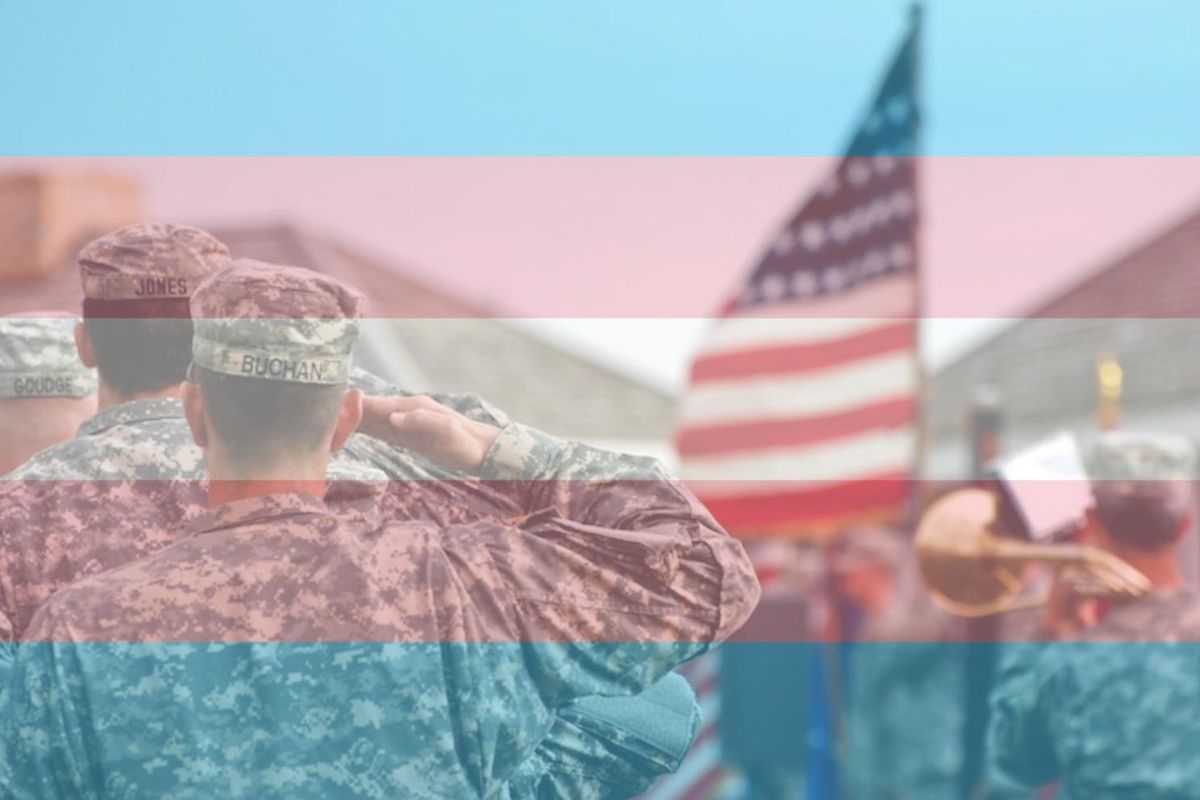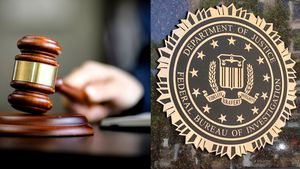Air Force Major Bryan "Bree" Fram was thrilled to hear the news that, after a year of waiting, she could finally serve openly in the U.S. military as a transgender or gender-fluid individual.
"I know just how lucky I am to be serving at this moment compared to all the veterans that served in silence or were discharged for being their authentic selves," she said. "It's a huge weight lifted off the shoulders of the spouses and loved ones, including mine, of transgender servicemembers. They too can breathe easily with the lifting of the ban."
Defense Secretary Ash Carter announced in a Thursday news conference that the military would no longer discharge personnel who identify as transgender. The policy shift strikes down one the last barriers to military service for LGBT Americans since "don't ask, don't tell" was repealed in 2010.
"I feel proud that the military ban is finally being lifted on my fellow transgender brothers and sisters," Air Force member Logan Ireland said. "I'm proud because we, as a community of actively serving transgender military members, spoke up and our voices were heard."
RELATED: Meet 7 Trans Soldiers Who Served Our Country
Carter first hinted at lifting the ban in summer 2015, setting a six-month deadline for senior military officials to study the impact of lifting the ban on military readiness. However, the Pentagon missed its initial deadline, requesting more time.
Now, just before the Fourth of July holiday, the Pentagon is taking a bold step forward. While some military officials are wary about the consequences of moving too fast, transgender soldiers and veterans believe that America's armed forces will adapt far more easily than suspected.
"This really isn't going to be that hard. They are absolutely prepared," Laila Ireland, a transgender Army veteran who served in Iraq. "Our service, our job performance, our jobs--they don't change. These things will continue to stay the same. The policy change will allow [transgender soldiers] to have more pride in who they are and their volunteered service to protect our country."
The ban will be replaced with a policy that will require proof of treatment for gender dysphoria for about 18 months before a transgender person can be declared medically fit for service.
RELATED: Military Benefits Could Cover Sex Reassignment for Transgender Veterans
Despite the ban, transgender American have always served in the military, and an estimated 15,000 transgender soldiers currently serve across all the branches. With the ban gone, transgender soldiers and veterans believe that this will inspire a new generation of LGBT soldiers.
"Many [transgender Americans] want to serve but have been dissuaded due to the policy or a fear of not being accepted," Fram said. "The 21st century military needs the best minds it can get to address new and emerging threats. We draw strength from diversity of thought throughout the ranks."
Now that the ban has ended, transgender soldier like Ireland can feel a new sense of belonging in the country they choose to defend.
"This is about us as human beings," Ireland. "Human beings with dreams and the desire to want to selflessly serve their country, willingly, with their heart and soul and strength. The policy change will show the generation that follows us that anything is possible. You just have to be willing to work hard and fight for it."

























































































